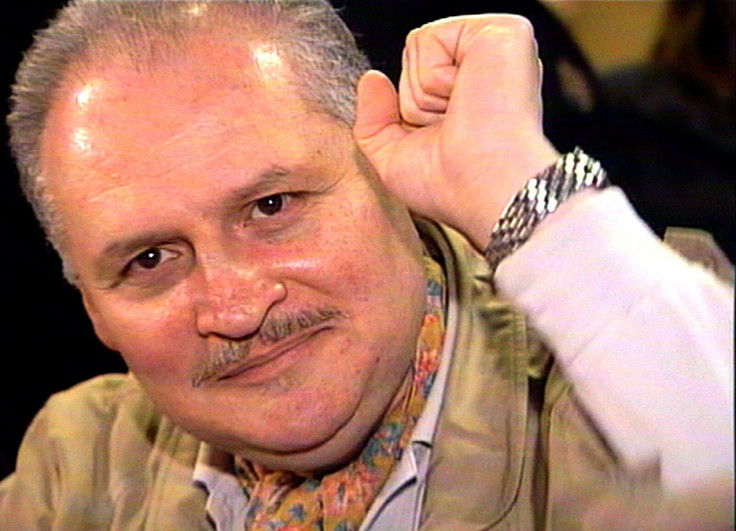Carlos The Jackal: Real-Life Terrorist Extraordinaire Seeks Appeal Over Bombing Conviction In Paris Court

Ilich Ramirez Sanchez, the terrorist better known as “Carlos the Jackal,” has appeared in a Paris court to appeal his conviction over a series of deadly bombings in France from the 1980s that garnered him a life sentence in prison.
He was declared guilty of masterminding bomb attacks on two French passenger trains in 1982 and 1982, another attack on a rail station in the southern city of Marseilles, as well as another attack on an anti-Syrian newspaper office in Paris. These attacks killed at least 11 people and left almost 150 injured.
He was already serving a life sentence for murder (of two French security agents and an alleged informer in 1975) when a Paris court convicted him in 2011 of the aforementioned attacks and tacked on yet another life term. He may also face another trial in connection with a bombing in Paris in 1974 that left two people dead.
Now 63 years old, Carlos the Jackal, a native of Venezuela and a fanatic Marxist-Leninist, has been jailed in France since 1994 when he was apprehended in The Sudan by French security agents.
He has denied any involvement in the 1982-1993 bombings.
His incredible life of sabotage, terrorism and murder would appear to have been drawn from the most imaginative spy thriller – indeed, he gained his nickname, The Jackal, when Frederic Forsyth’ spy novel “Day of the Jackal” was found among his belongings in 1971. (That book was about a plot to kill the president of France, Charles De Gaulle.)
Over the decades, the Jackal has been linked to the Popular Front for the Liberation of Palestine (PFLP); the East German secret police, the Stasi; Libyan leader Moammar Gadhafi; Baader-Meinhof Communist group of West Germany; Romania’s Securitate (secret police), the Syrian and Iraqi governments and many other entities.
Perhaps the Jackal’s most spectacular episode occurred in December 1975 when he and five cohorts took 11 OPEC ministers and dozens of other people hostage in Vienna, Austria -- killing three people in the chaos -- in an effort to publicize the Palestinian cause.
The Austrian government reluctantly provided a plane for the Jackal and his accomplices which he took to fly to Algeria, periodically releasing hostages along the way, eventually ending up in Libya, where some of the kidnappers were granted asylum.
Bassam Abu Sharif, a senior PFLP official, claimed that the Jackal received tens of millions of dollars in ransom from unnamed Middle Eastern states in exchange for the hostages’ lives.
The Jackal has repeatedly described himself in many interviews as a “professional revolutionary” and “freedom fighter” for the cause of Palestinians (he converted to Islam in the mid-1970s). While denying culpability in the 1982-1983 French bombings, he has nonetheless bragged about killing hundreds of innocent civilians as part of his multi-decade campaign to free Palestine.
In a 2011 interview with El Nacional, a Venezuelan newspaper, the Jackal said he was “proud of the results” of the more than 100 terror attack he is believed to have perpetrated.
In 1997, in a French court appearance, he declared: "When one wages war for 30 years, there is a lot of blood spilled -- mine and others. But we never killed anyone for money, but for a cause -- the liberation of Palestine," adding "there is no law for me. I am a political prisoner.”
His life is very quiet now, in stark contrast to his prolific career as a terrorist.
Agence-France Presse reported that the Jackal is currently incarcerated in the Centrale de Poissy prison in the western suburbs of Paris, where he spends his time leisurely reading, taking philosophy and literature courses and meeting with many visitors.
"It is similar to the life of a monk in an abbey," said one of his attorneys, Francis Vuillemin, according to AFP.
© Copyright IBTimes 2024. All rights reserved.











